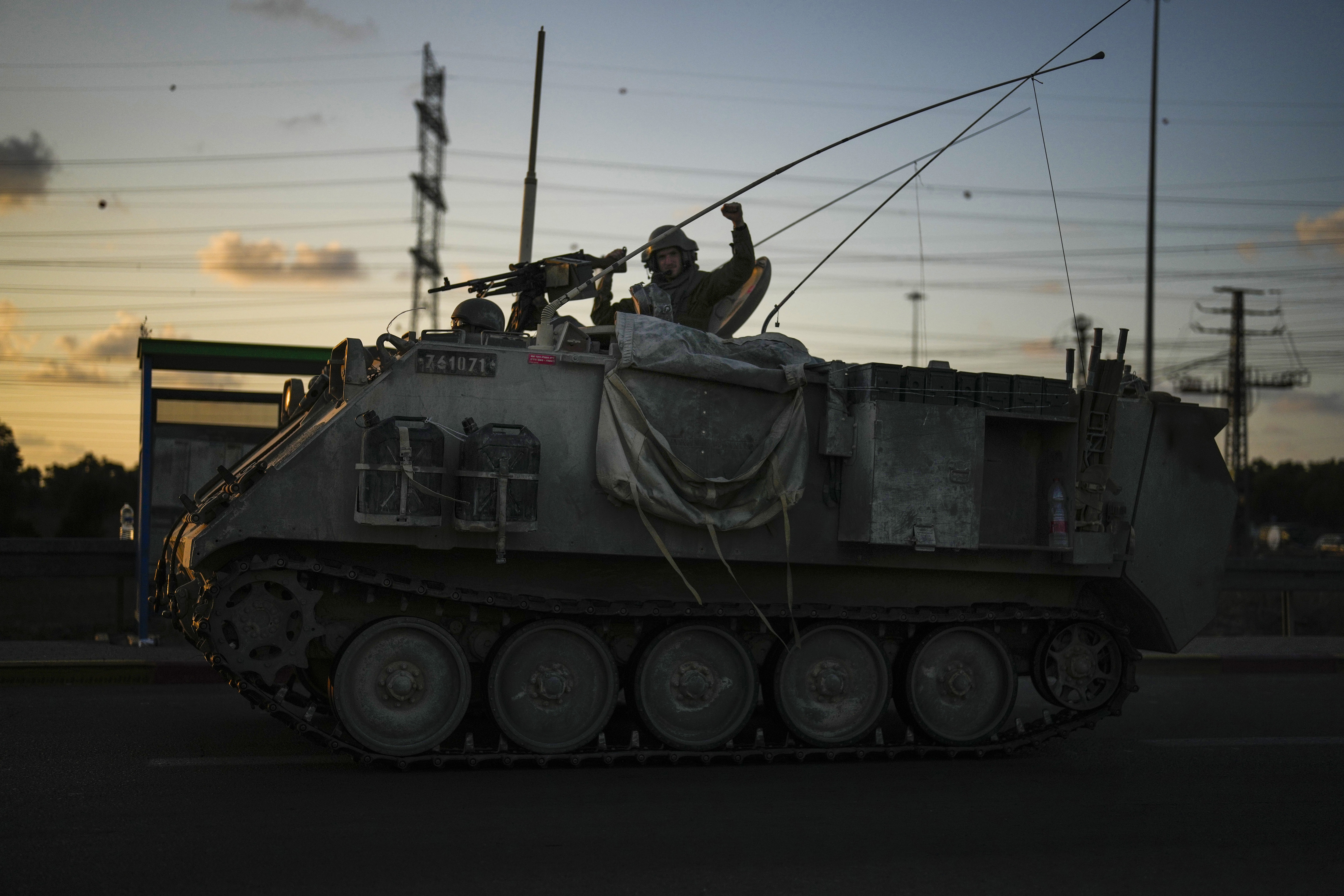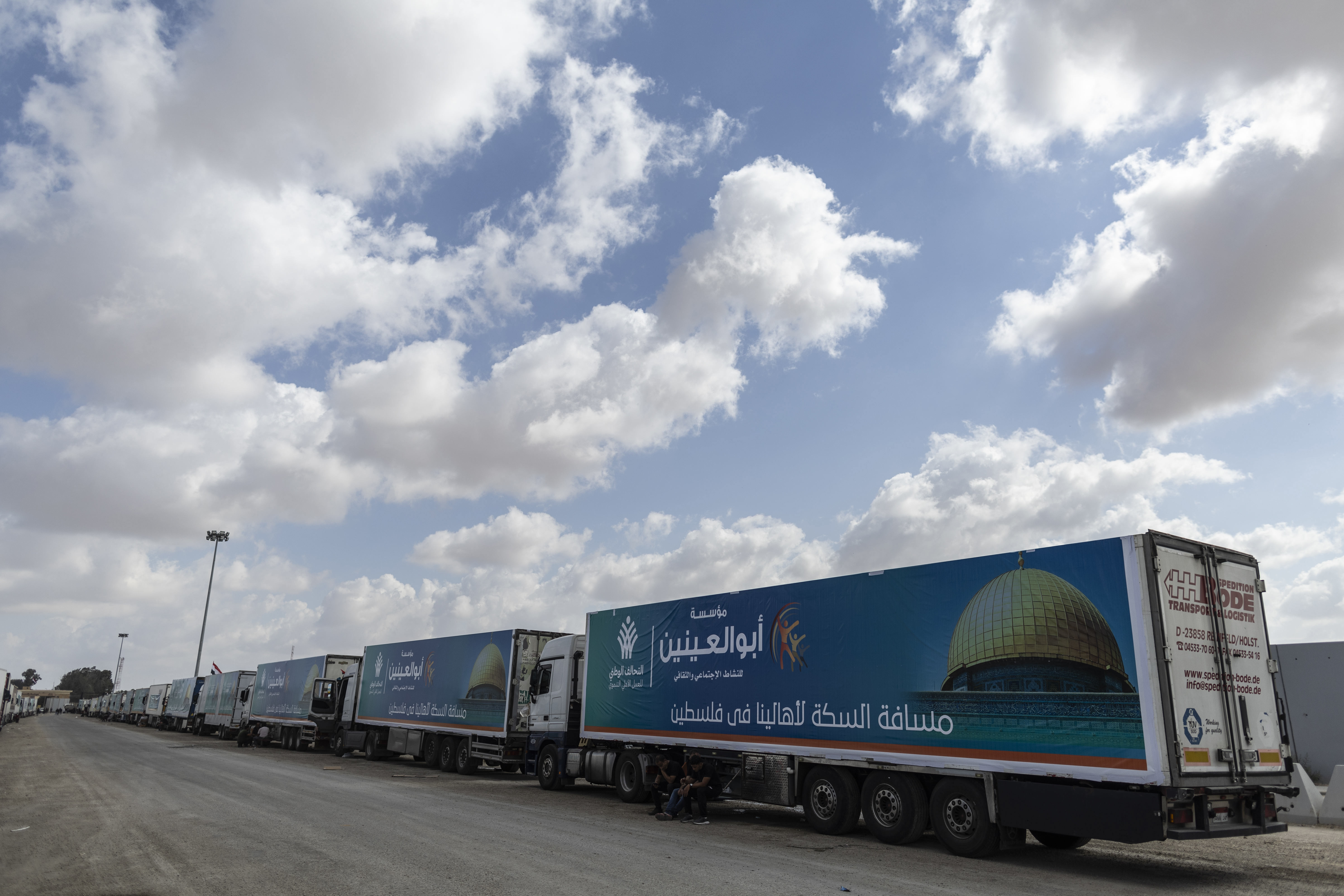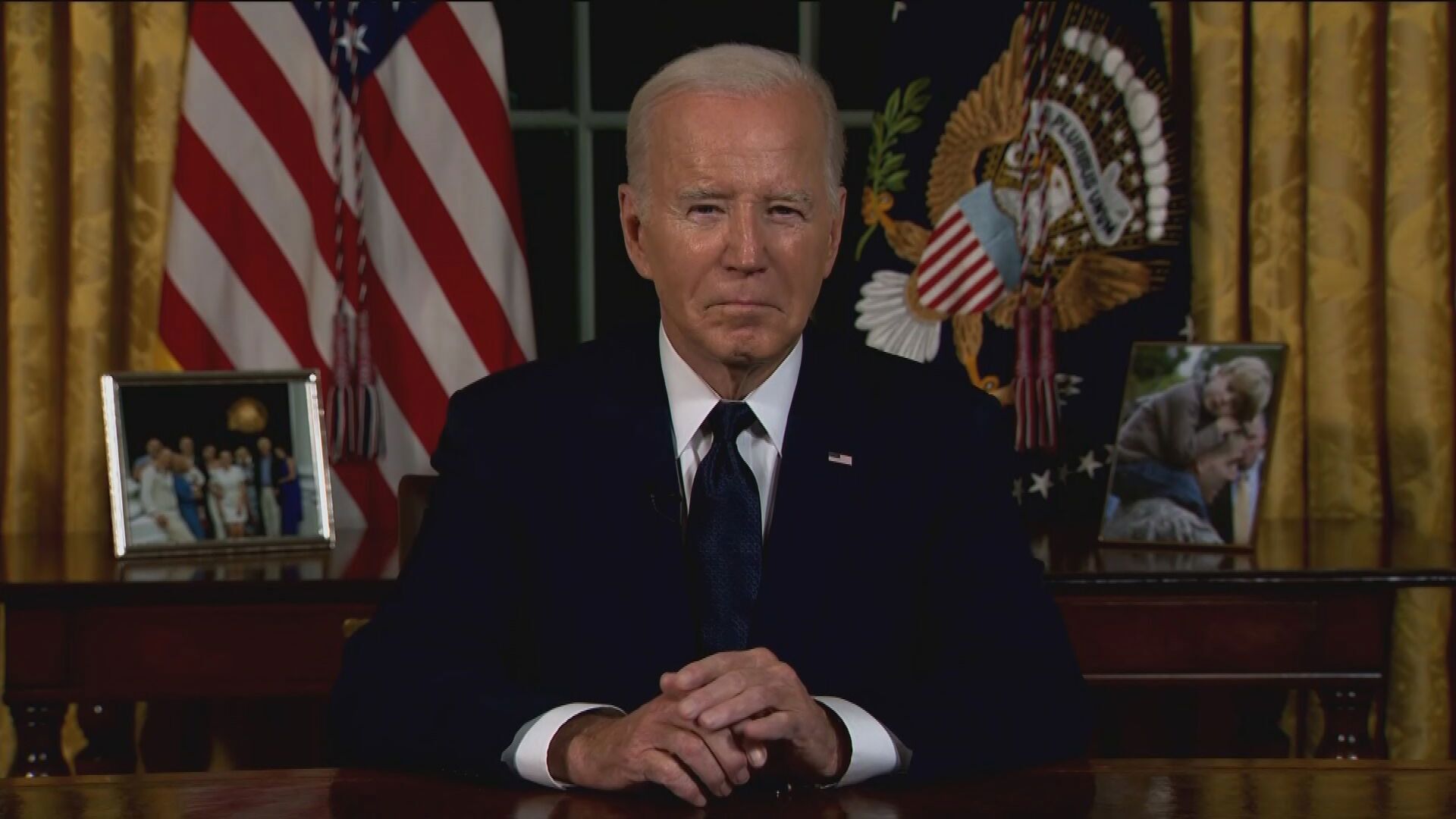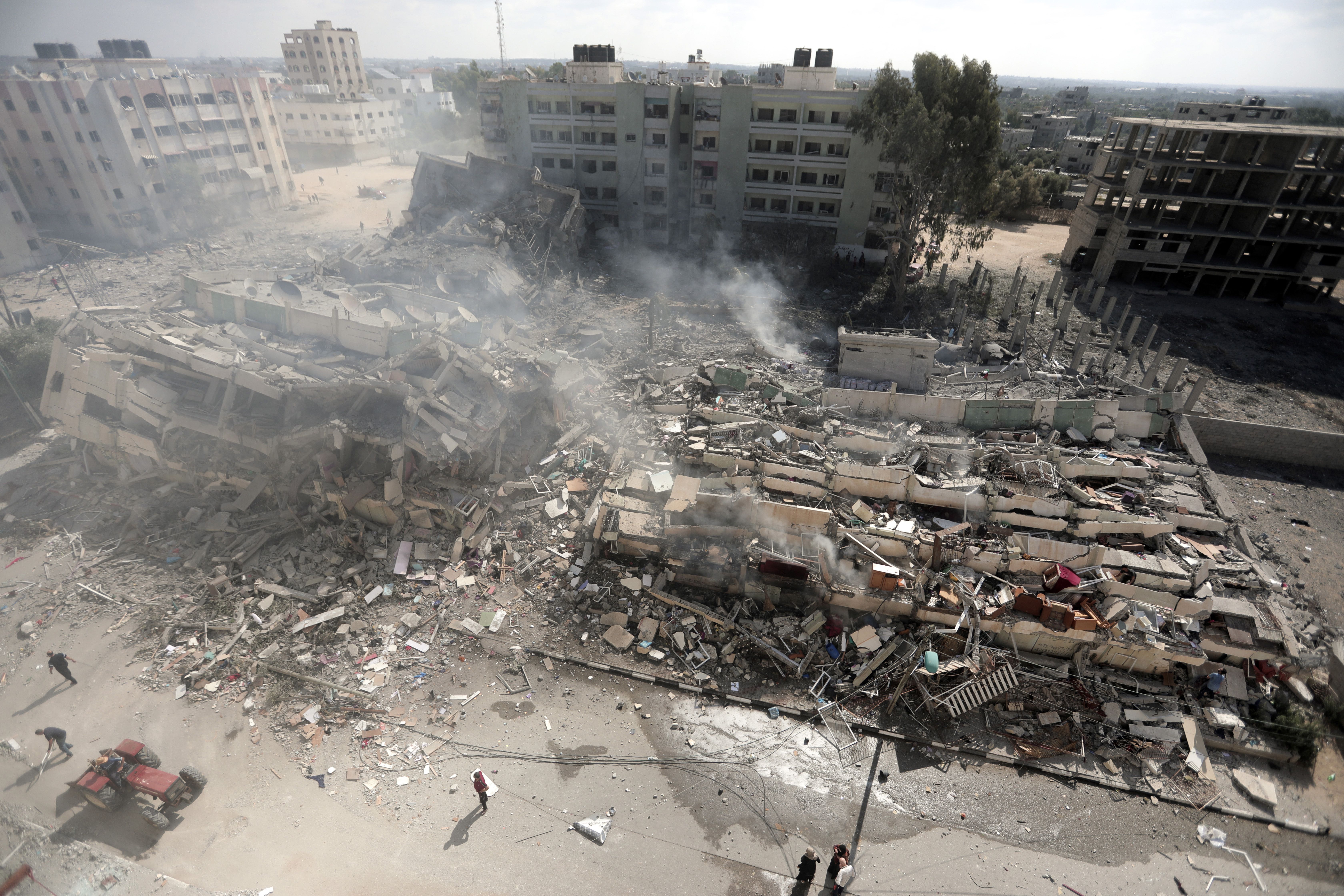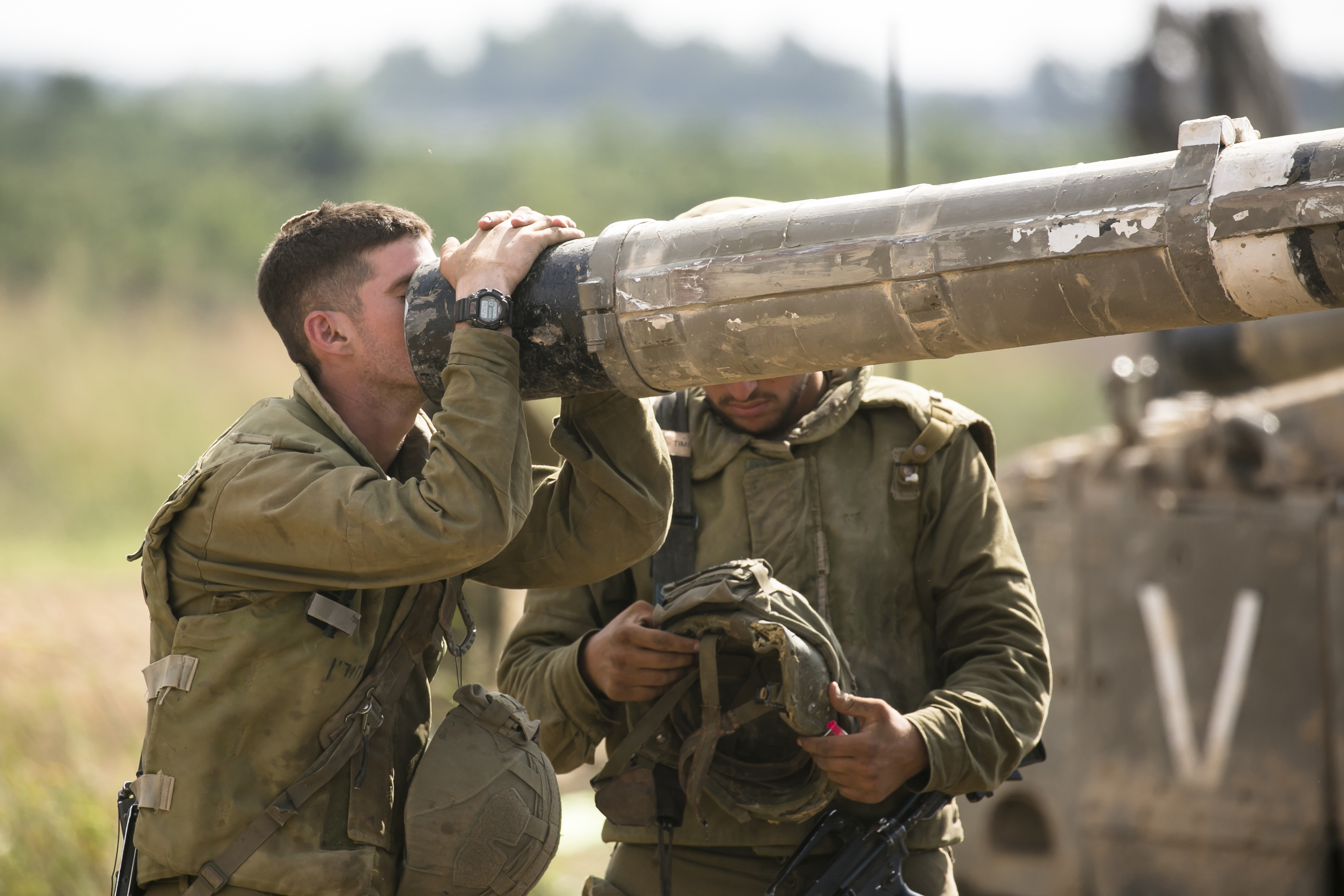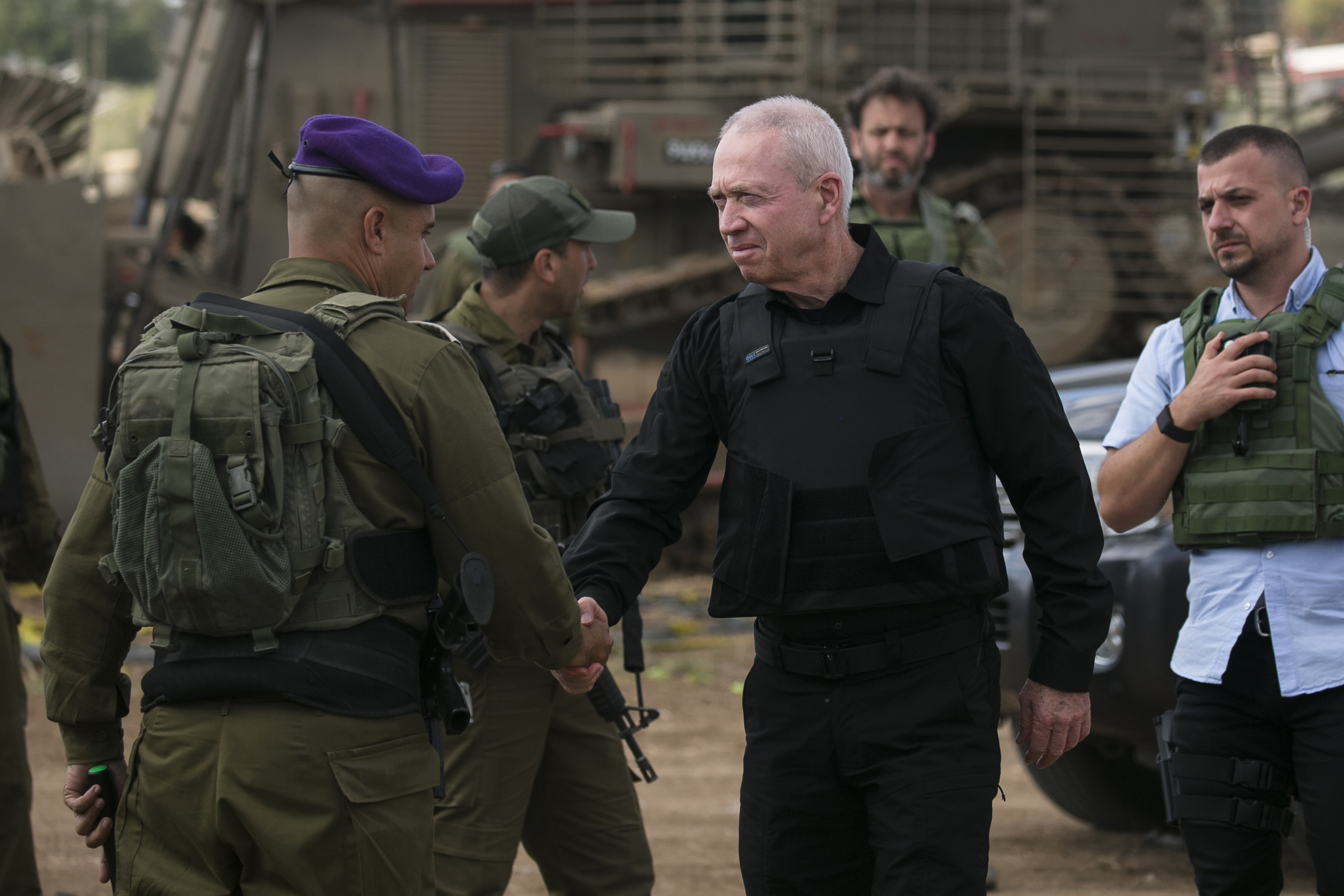Israel bombarded Gaza early on Friday morning (local time), hitting areas in the south where Palestinians had been told to seek safety, and it began evacuating a sizable Israeli town in the north near the Lebanese border, the latest sign of a potential ground invasion of Gaza that could trigger regional turmoil.
Palestinians in Gaza reported heavy airstrikes in Khan Younis in the south, and ambulances carrying men, women and children streamed into the town’s Nasser Hospital – Gaza’s second largest – which is already overflowing with patients and people seeking shelter.
On Thursday, Israeli Defence Minister Yoav Gallant ordered ground troops to prepare to see Gaza “from the inside,” hinting at a ground offensive aimed at crushing Gaza’s militant Hamas rulers nearly two weeks after their bloody incursion into Israel.
Officials have given no timetable for such an operation.
Over a million people have been displaced in Gaza, with many heeding Israel’s orders to evacuate the northern part of the sealed-off coastal enclave.
Gaza’s overwhelmed hospitals are rationing their dwindling medical supplies and fuel for generators, as authorities worked out logistics for a desperately needed aid delivery from Egypt that has yet to enter.
Doctors in darkened wards across Gaza performed surgeries by the light of mobile phones and used vinegar to treat infected wounds.
The deal to get aid into Gaza through Rafah, the territory’s only crossing not controlled by Israel, remained fragile.
Israel said the supplies could only go to civilians and that it would “thwart” any diversions by Hamas.
More than 200 trucks and some 3000 tons of aid were positioned at or near Rafah, but work has not yet begun on repairing a road on the Gaza side that was damaged by airstrikes.
Israel has evacuated its own communities near Gaza and Lebanon, putting residents up in hotels elsewhere in the country in a state-funded program.
On Friday, the Defence Ministry announced evacuation plans for Kiryat Shmona, a town of more than 20,000 residents near the Lebanese border.
Lebanon’s Hezbollah militant group, which has a massive arsenal of long-range rockets, has traded fire with Israel along the border on a near-daily basis and hinted it might join the war if Israel seeks to annihilate Hamas.
Israel’s archfoe Iran supports both armed groups.
President Joe Biden pledged unwavering support for Israel’s security, “today and always” while adding that the world “can’t ignore the humanity of innocent Palestinians” in the besieged Gaza Strip.
In an address on Friday morning (Thursday night US time) from the Oval Office, hours after returning to Washington from an urgent visit to Israel, Biden drew a distinction between ordinary Palestinians and Hamas.
He linked the current war in Gaza to the Russian invasion of Ukraine, saying Hamas and Russian President Vladimir Putin “both want to completely annihilate a neighbouring democracy”.
Biden said he was sending an “urgent budget request” to Congress on Friday to cover emergency military aid to both Israel and Ukraine.
Meanwhile, an unclassified US intelligence assessment delivered to Congress estimated casualties in an explosion at a Gaza City hospital this week on the “low end” of 100 to 300 deaths.
The death toll “still reflects a staggering loss of life”, said the report, seen by The Associated Press. It said intelligence officials were still assessing the evidence and their casualty estimate may evolve.
The report echoed earlier assessments by US officials that the blast at the al-Ahli hospital was not caused by an Israeli airstrike, as the Hamas-run Health Ministry in Gaza initially reported.
Israel has presented video, audio and other evidence it says proves the blast was caused by a rocket misfired by Palestinian militants.
The AP has not independently verified any of the claims or evidence released by the parties.
An Israeli airstrike hit a Greek Orthodox church housing displaced Palestinians near the hospital late on Thursday.
The Israeli military said it had targeted a Hamas command and control centre nearby, causing damage to a church wall. In the immediate aftermath, Palestinian medics gave conflicting accounts of the number of wounded.
The Greek Orthodox Patriarchy of Jerusalem condemned the attack and said it would “not abandon its religious and humanitarian duty” to provide assistance.
The Israeli military has relentlessly attacked Gaza in retaliation for the devastating October 7 Hamas attack. Even after Israel ordered a mass evacuation to the south, strikes extended across the territory, heightening fears among the territory’s 2.3 million people that nowhere was safe.
Palestinian militants have meanwhile fired daily rocket barrages into Israel from Gaza, and tensions have flared in the Israeli-occupied West Bank, where 13 Palestinians, including five minors, were killed on Thursday during a battle with Israeli troops in which Israel called in an airstrike, according to the Palestinian Health Ministry.
The Gaza Health Ministry said 3785 people have been killed in Gaza since the war began, the majority women, children and older adults. Nearly 12,500 were injured, and another 1,300 people were believed buried under rubble, authorities said.
More than 1400 people in Israel have been killed, mostly civilians slain during Hamas’ deadly incursion. Roughly 200 others were abducted. The Israeli military said it had notified the families of 203 captives.
In a fiery speech to Israeli infantry soldiers on the Gaza border, Gallant urged the forces to “be ready” to move in. Israel has massed tens of thousands of troops along the border.
“Whoever sees Gaza from afar now, will see it from the inside,” he said.
“It might take a week, a month, two months until we destroy them,” he added, referring to Hamas.
With supplies running low because of a complete Israeli siege, some Gaza residents are down to one meal a day and drinking dirty water.
Egypt and Israel were still negotiating the entry of fuel for hospitals. Israeli military spokesman Rear Admiral Daniel Hagari said Hamas has stolen fuel from UN facilities and Israel wants assurances that won’t happen.
The Gaza Health Ministry has pleaded with gas stations to give fuel to hospitals and a UN agency donated some of its last fuel.
Gaza’s sole power plant shut down last week, forcing Palestinians to rely on generators, and no fuel has gone in since the start of the war.
The agency’s donation to Gaza City’s Shifa Hospital, the territory’s largest, would “keep us going for another few hours,” said Abu Selmia, the hospital director.


